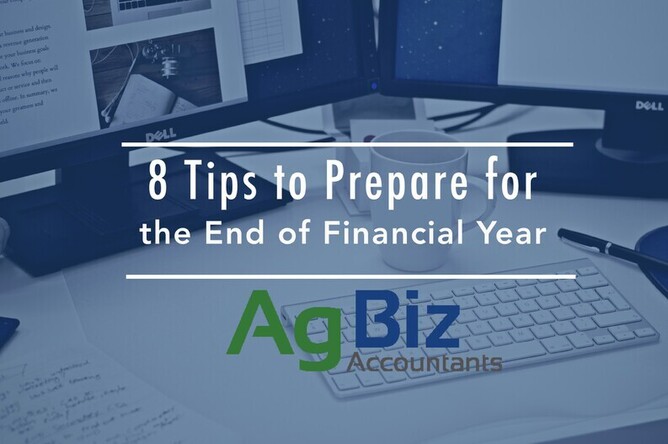If you have a 31 March balance date, the end of the financial year is rapidly approaching. Have a read of our top tips below to prepare for the end of financial year.
Review the Year, and Plan Ahead
Have you achieved what you wanted to? Have you planned and set goals for the next year?
While some of these thoughts and discussion may take place once the financial statements are completed to understand the overall profitability and performance of the business, start thinking about these questions now. The year-end process may also include a review of your business structures to ensure it is currently aligned with your business operations and goals. Reverse engineer your long term goals and break them down to a yearly and then monthly budget and cashflow forecast. Then plan to do regular reporting against this. You will more effectively manage what you measure.
If you are buying any new assets, making financing decisions, merging or acquiring new businesses, changing your business activities or structures, please come have a chat with us before you do it. There may be some hidden rules, thinking outside the box, or tax efficient strategy that we can help you with.
Inventory Stock Take
- If your business holds stock, it's time to count it!
Review Debtors and Write Off Bad Debts
- Does someone owe you money? Are you likely to receive it?
- Review the list of people who owe you money and write out of your debtors ledger anyone who is not likely to pay you… You can still chase them...
- Prepare a list of the people who owe you money at 31 March.
Review Creditors
- Prepare a list of money you owe to other people to at 31 March
Motor Vehicle Expenditure
- Review current motor vehicle expense treatment
- Do you need to keep a log-book? A log-book needs to be recorded for a three month period every three years.
- Consider if a private vehicle should be included in the business for the new financial year and vice versa.
Payroll and Holiday Pay Accrual
- Make sure your payroll is up to date and all end of year reports run including….
- Record the holiday pay outstanding to your employees at 31 March
Kiwisaver
- If you pay an annual voluntary lump sum into Kiwisaver as a self-employed person to get the member tax credits – consider getting it done shortly to meet the 30 June deadline for the 2017 year
Consider Improving Business Systems
If there is such thing as the 'right time', now is it to change business systems. By changing things on 1 April means there is no part year, or two systems in one year to consider. This system change could be a move to Xero, a change in payroll system, or integrating systems together. It could also be an internal process that doesn't require any software or external changes such as new internal process to sign up new clients and manage the sign up process and how that may transition to booking future appointments.
Feel free to get in touch for a non-obligation meeting to discuss any of our top end of financial year tips!
This material has been prepared for informational purposes only, and is not intended to provide, and should not be relied on for, tax, legal or accounting advice. You should consult your own tax, legal and accounting advisors before engaging in any transaction.





